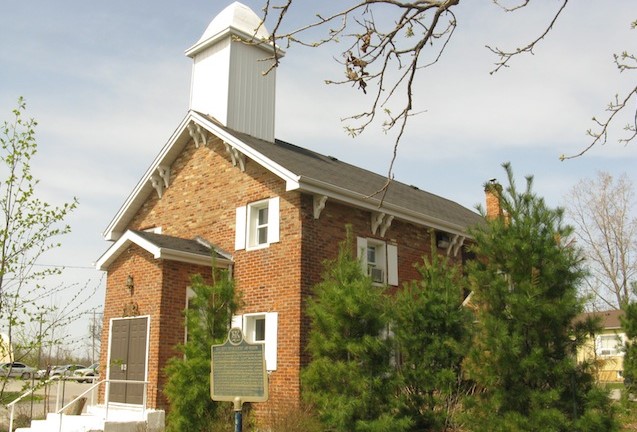The Old Council House
Mississaugas of the Credit First Nation
Follow us:
616 VOTES

Share this page
Restoring Anishinaabe Governance to the historic Old Council House, the heart of the Mississaugas of the Credit First Nation.
Why vote for us?
After the Report of the Royal Commission on Aboriginal Peoples (1996) and the Truth and Reconciliation Commission’s Final Report (2015) Canadians now understand the significance of Truth and Reconciliation.
While there is much work to do, a vote for the restoration of the Old Council House is a step on the path towards a reconciliation journey. Believed to be the first Band Council formed under the Indian Act (1876), the historic Old Council House was the seat of Anishinaabe governance within the Greater Golden Horseshoe region for over 100 years.
Community impact
Restoring the Old Council House is part of a broader effort to preserve Anishinaabe language, history and culture. Through the restoration of the historic Old Council House, the community will have a place to repatriate artifacts scattered around the world, welcome band members who live off the reserve and have never visited the land their ancestors called home and return Anishinaabe governance to its historic location.
“Trying to stay who you are is a challenge,” King said. “A restored building is going to help us bring people in and keep telling our story.”
About this place
After opening in 1882 – 35 years after the Mississaugas moved from their ancestral home along the banks of the Credit River to their present home bordered by Six Nations – the council house became a gathering point for band members.
Always serving as the heart of the community, the Old Council House has doubled as a community centre, schoolhouse, concert hall, and even a factory to make burlap upholstery for car seats – manufacturing equipment was pushed aside for council meetings.
“The council house was the centre,” said historian and former MCFN chief Carolyn King, who is on the committee working to restore the venerable building.
As an employee of the band’s economic development office on the upper floor of the council house, King remembers attending council meetings in the unheated chambers in the 1980s, with snow blowing under the doors.
-
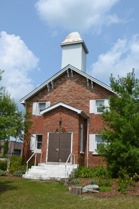
-
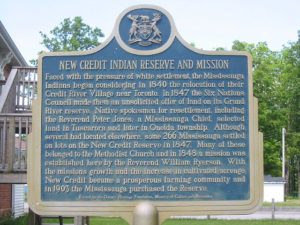
-
Ontario Heritage Plaque for the Old Council House
-
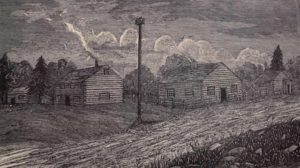
-
Historic MCFN settlement prior to reserve relocation
-

-
Mississauga Portraits Book for historic reference
-
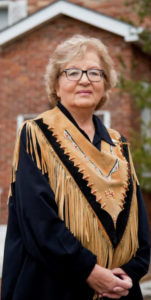
-
Community Member Carolyn King receives Order of Canada
-
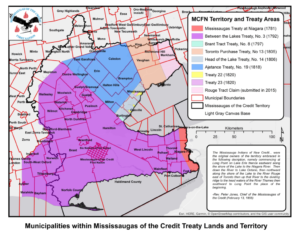
-
MCFN Treaty and Territorial Area
-
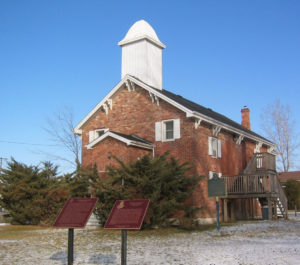

Ecclesiastical Insurance is deeply committed to protecting the needs of organizations that enrich the lives of others; to preserving Canada’s distinct communities, cultures and history; and to supporting initiatives that help improve the lives of people in need. The National Trust for Canada has a long-standing relationship with Ecclesiastical Insurance – our most faithful sponsor – and we are excited to work with them to help fund the Next Great Save!
Stay in touch. Get our newsletter.

